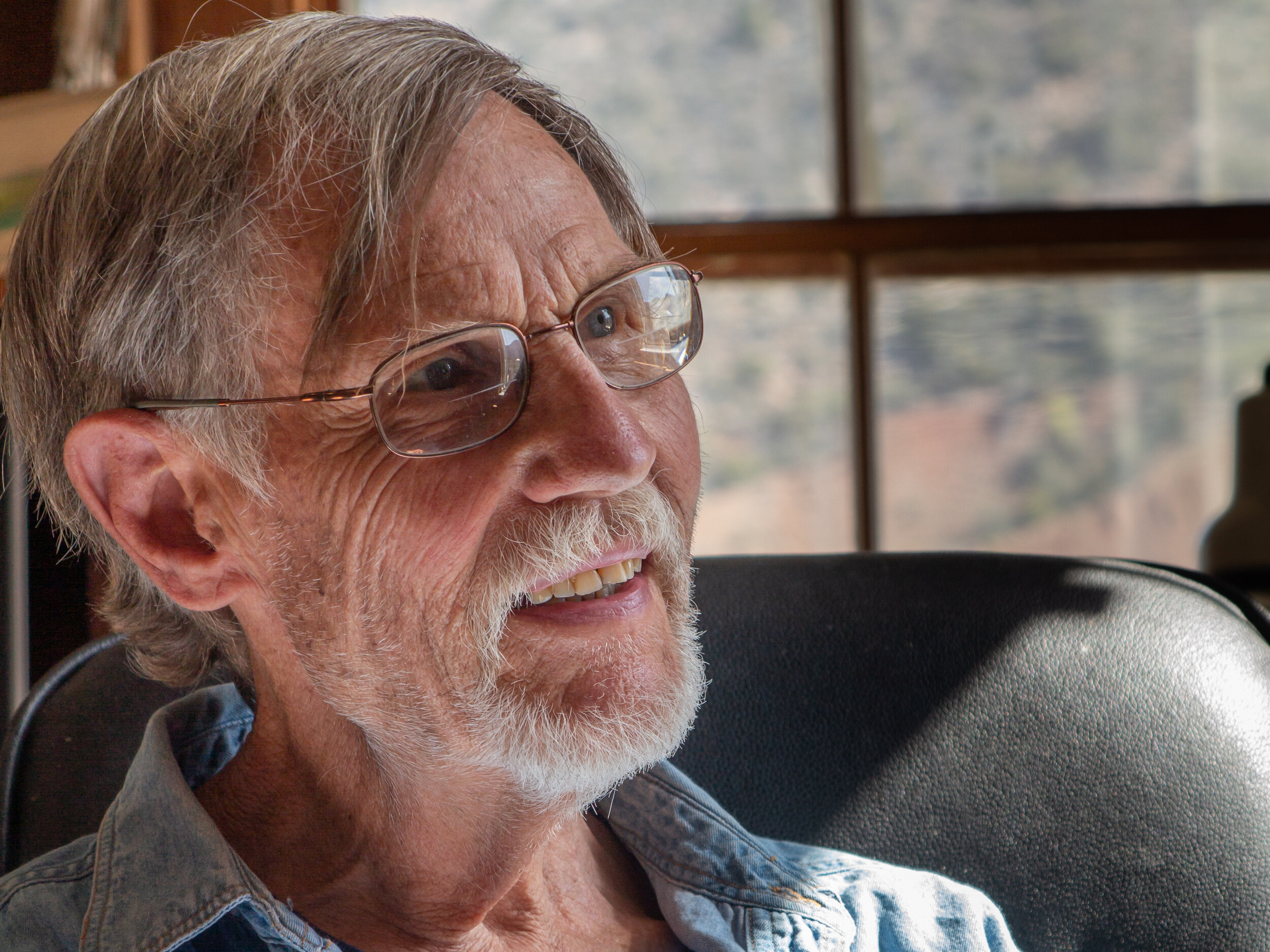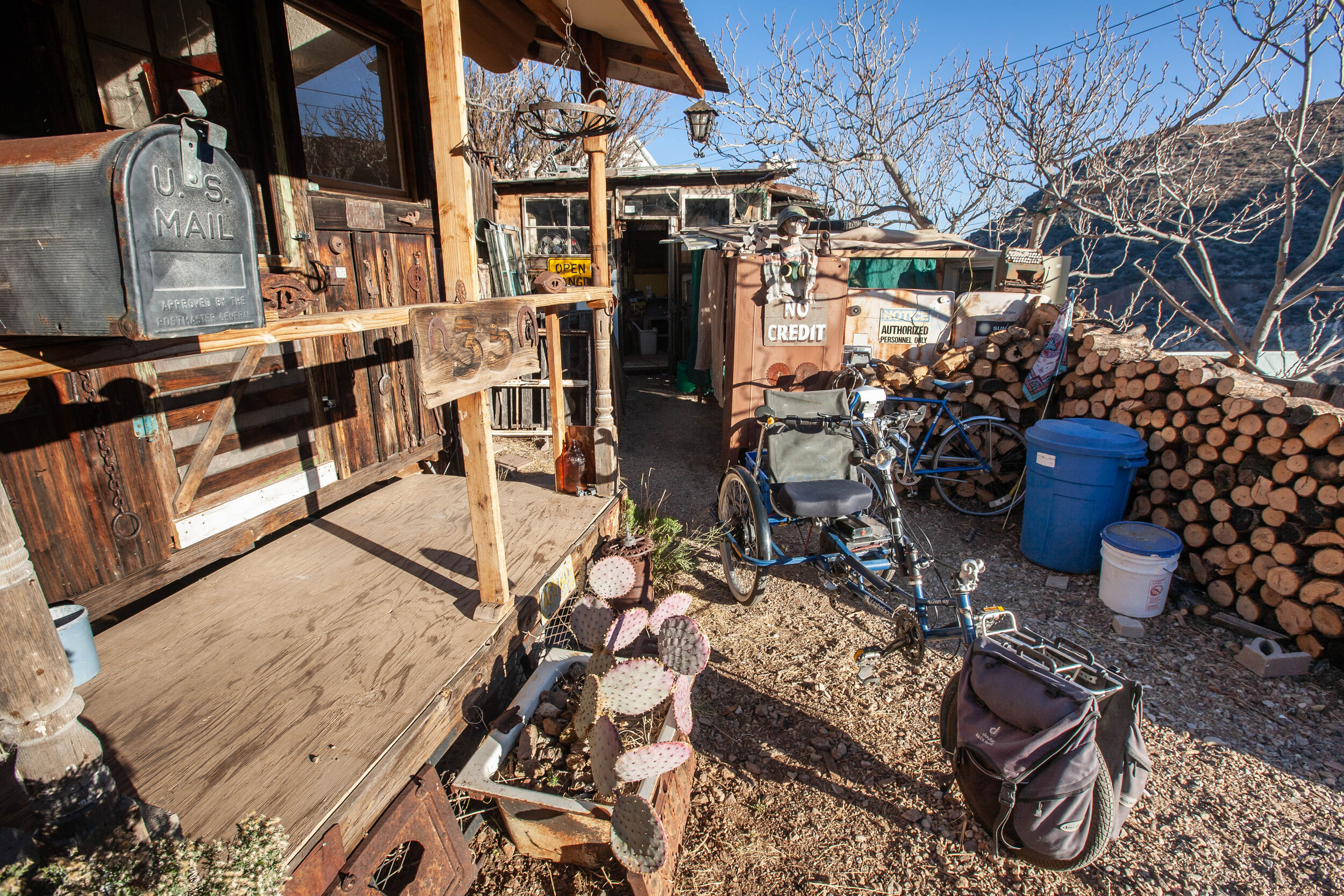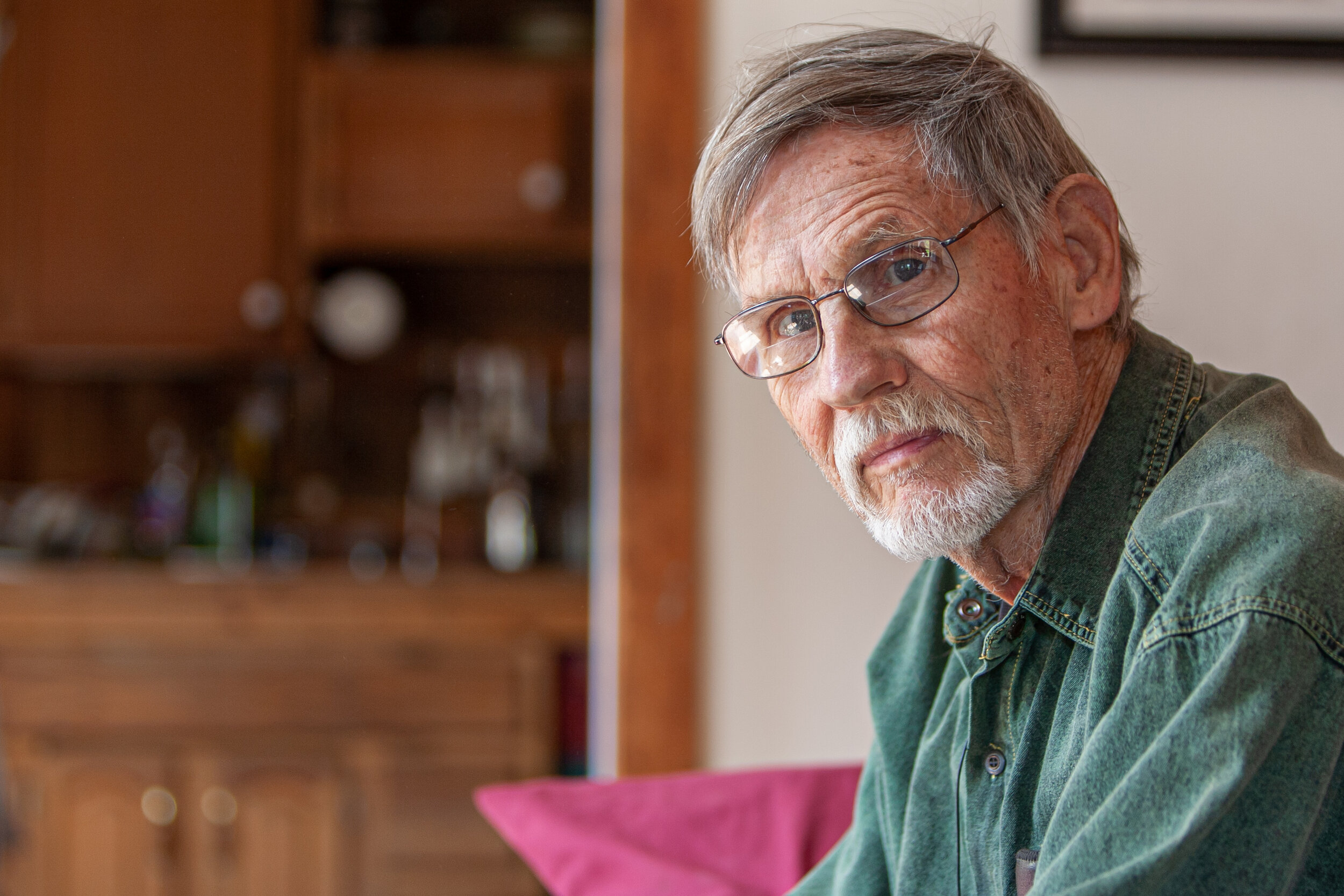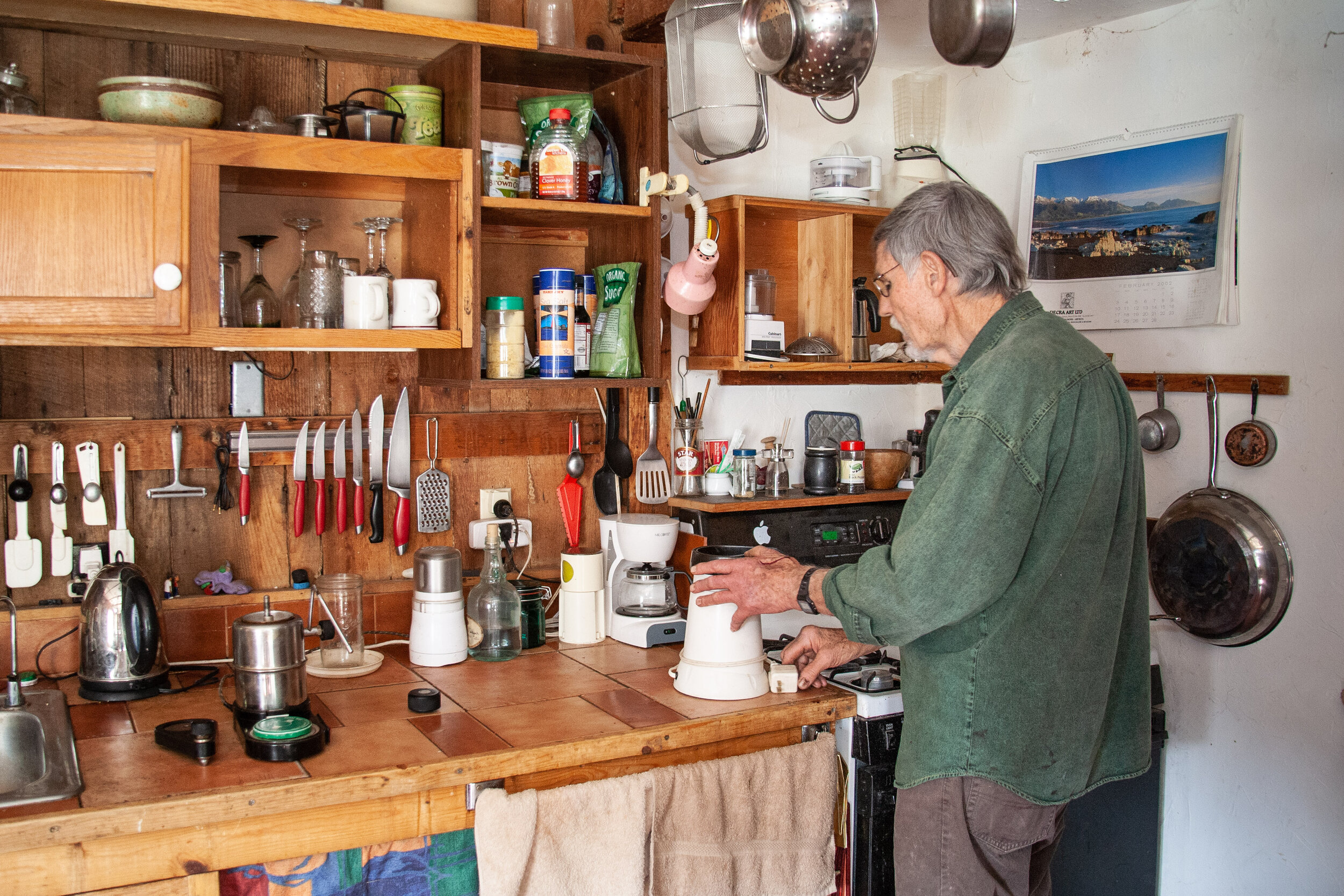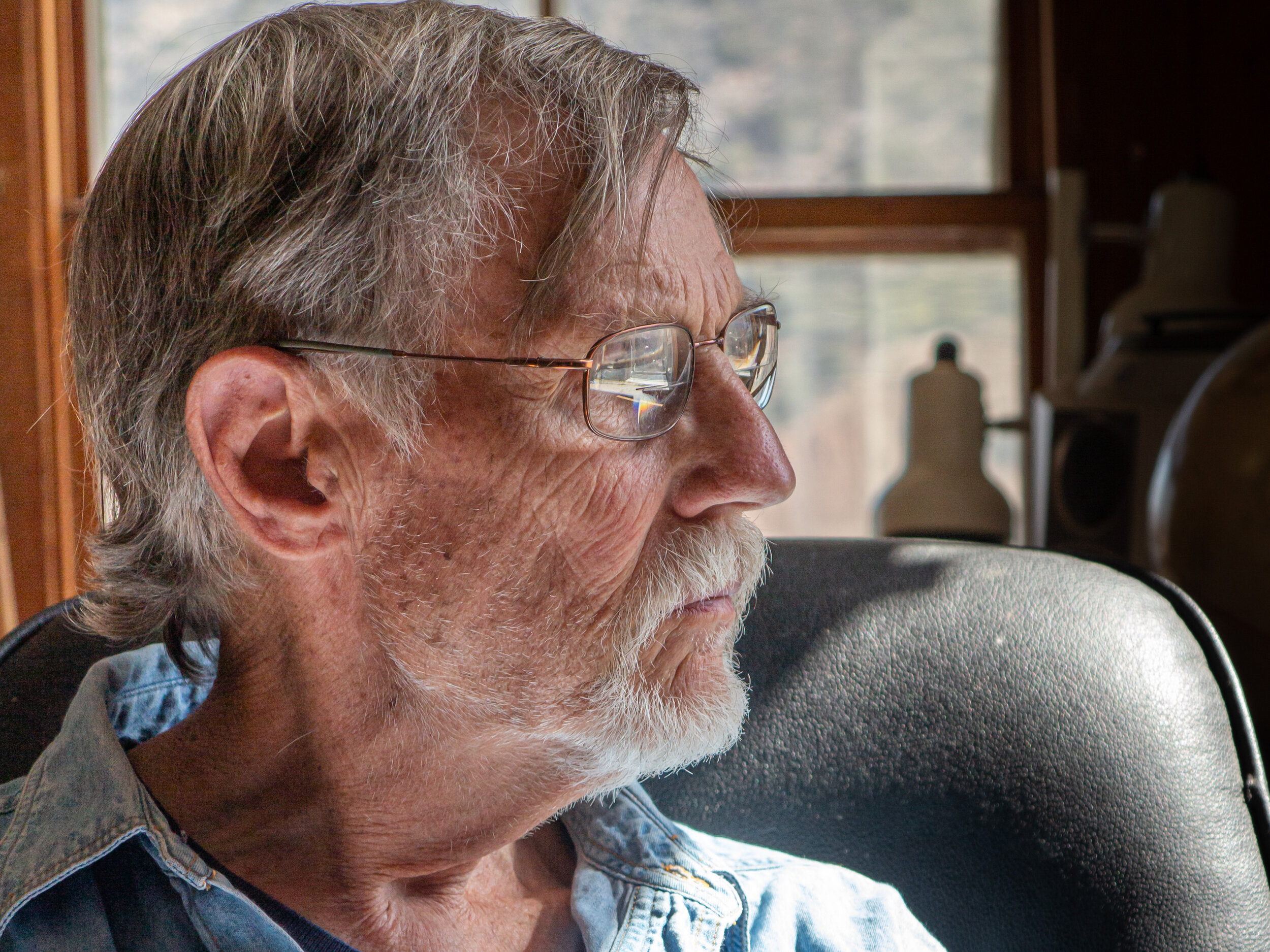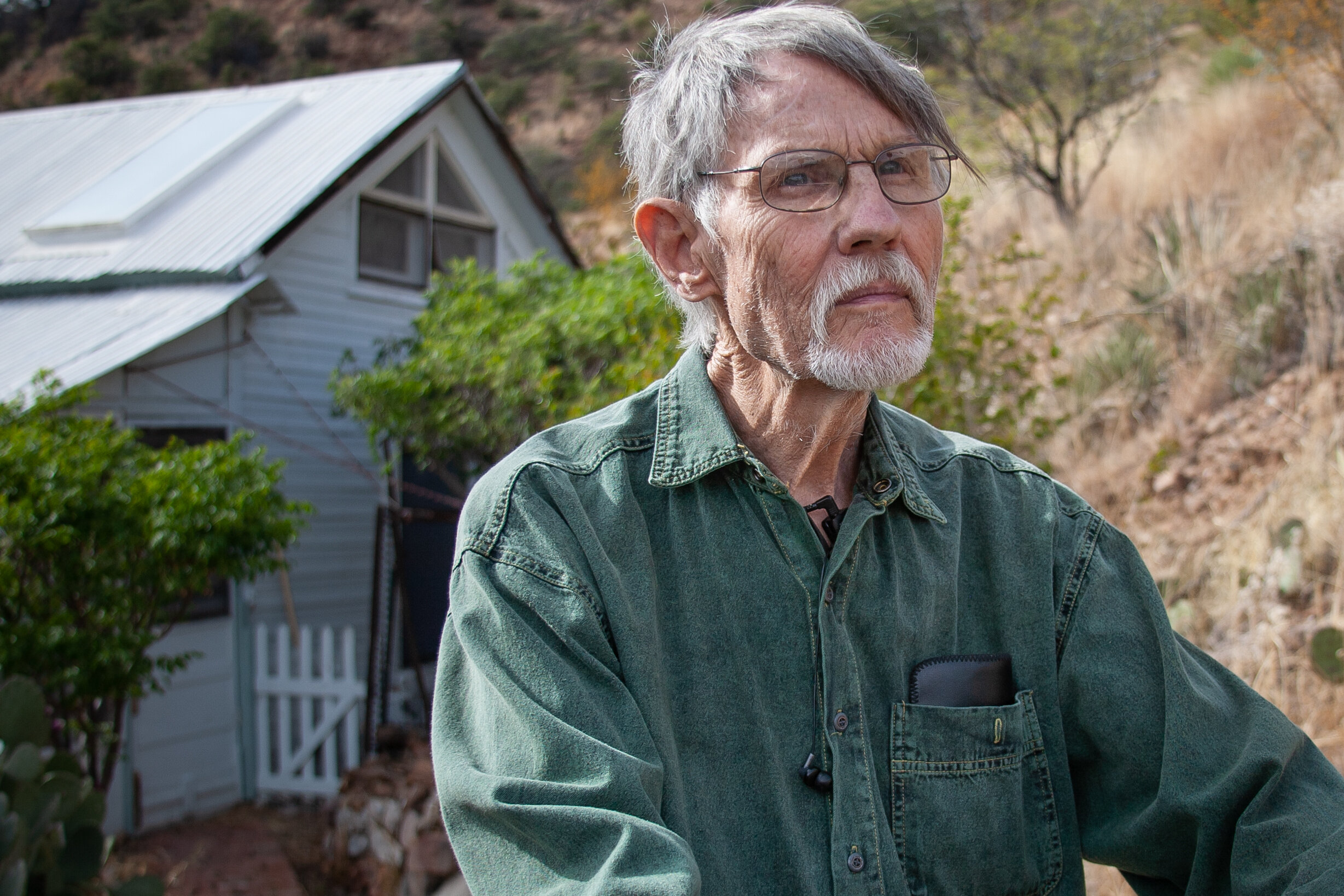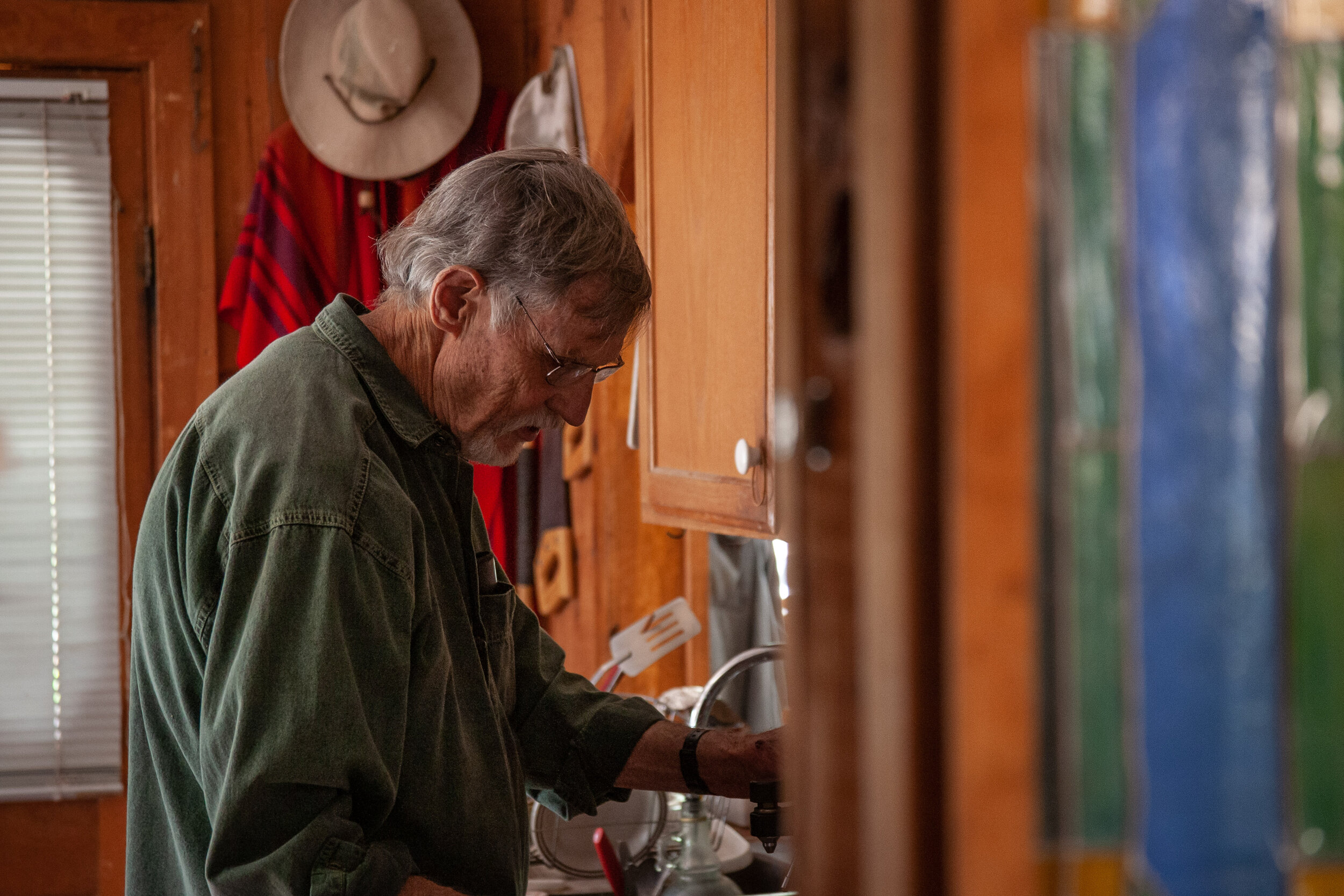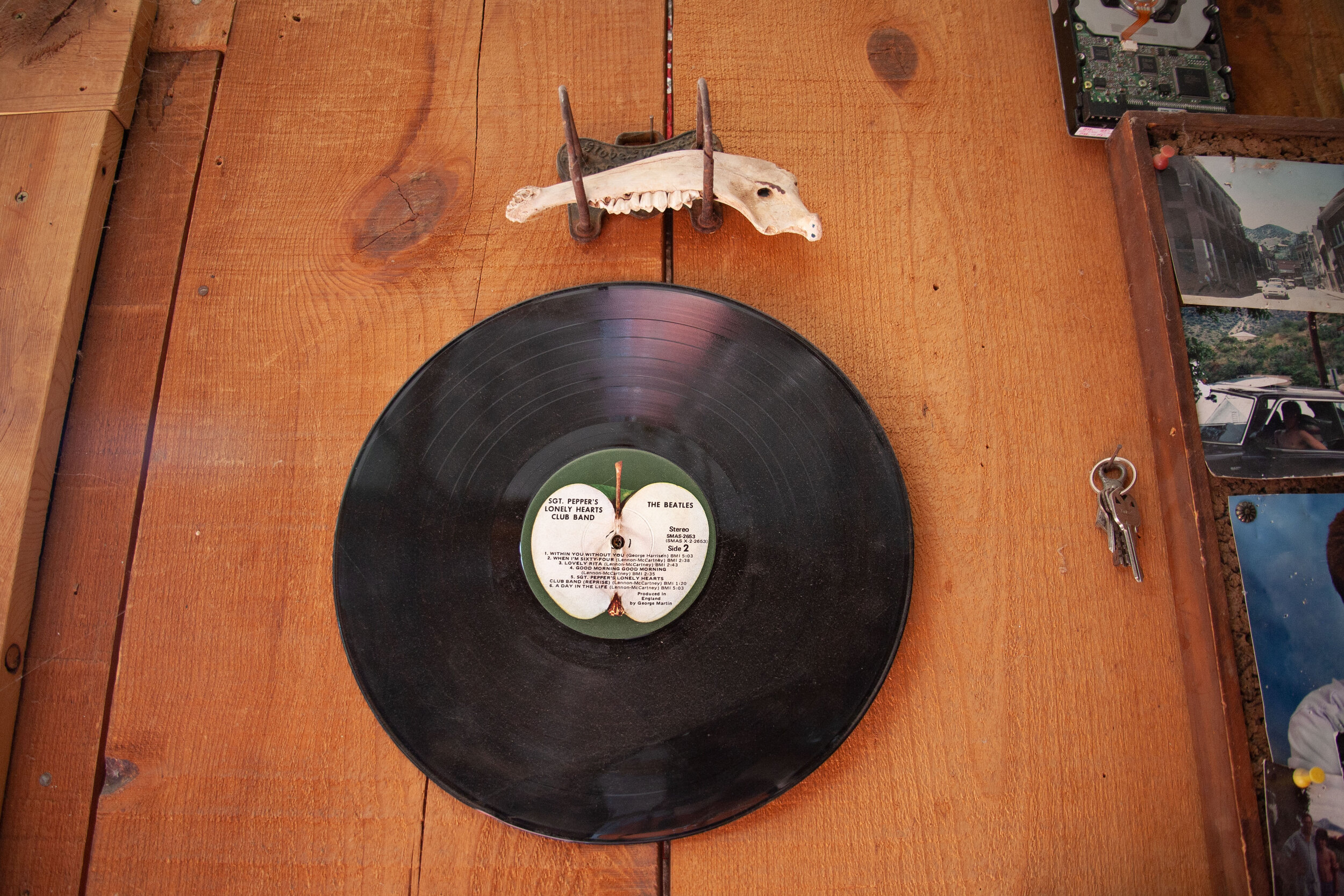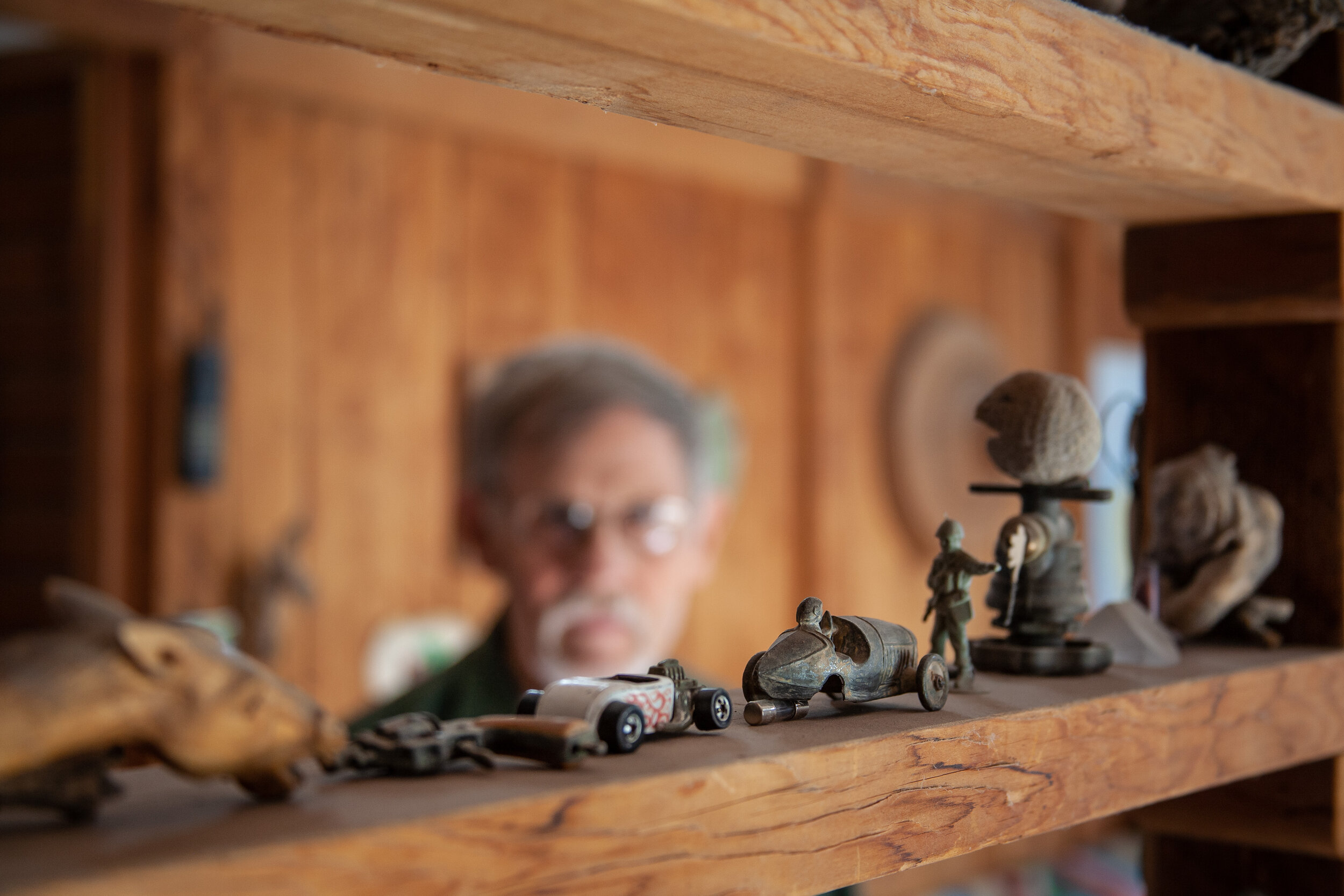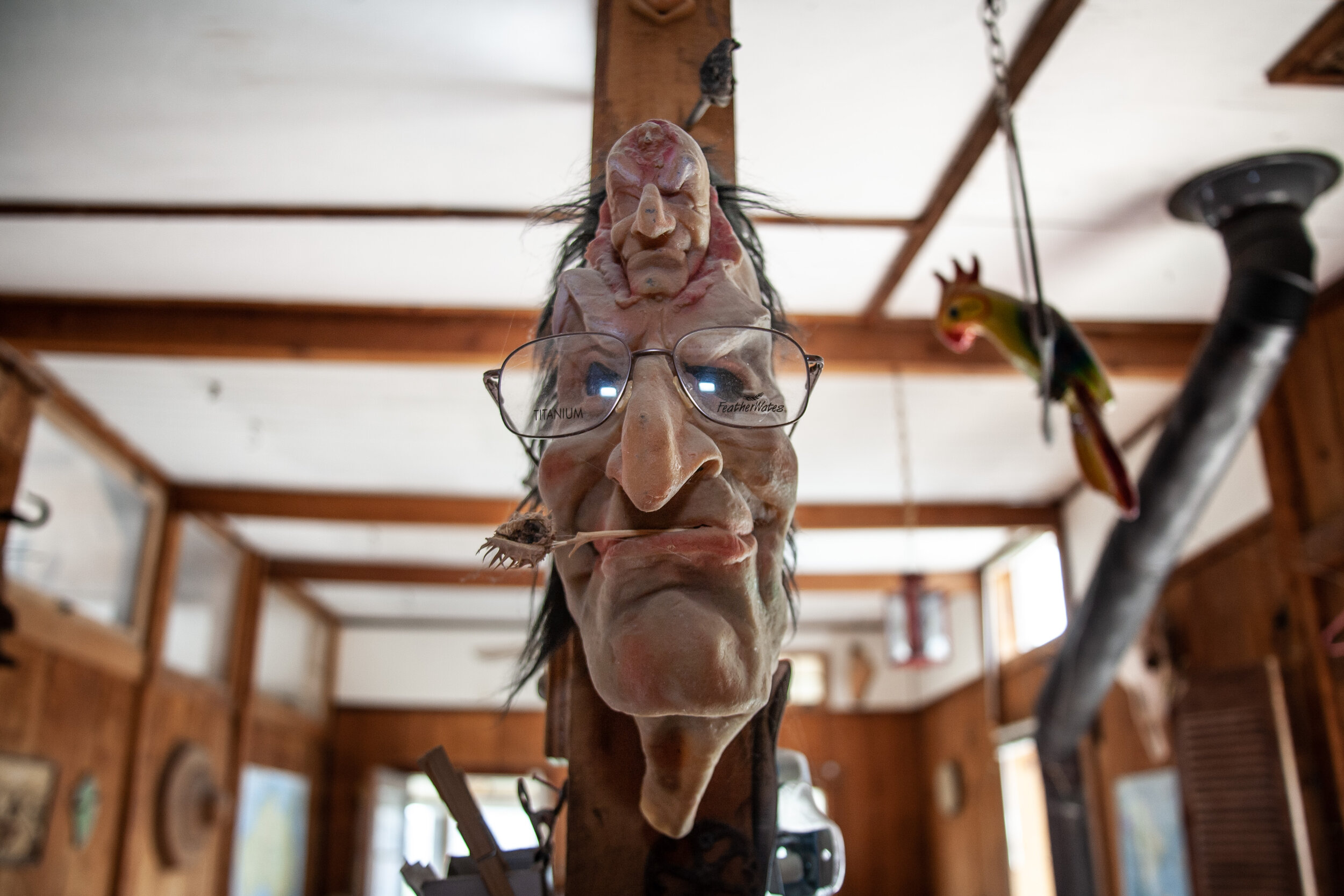The Anatomy of Wisdom
The Anatomy of Wisdom—Remembering Wilford Henry Luethje
This essay appeared in the April 15, 2020 edition of the The Bisbee Herald & Review. The Anatomy of Wisdom explores the life and the wisdom of Wilford (Will) Henry Luethje, a longtime resident of Bisbee. I met Will almost a decade ago during my travels in the Southwest. In his early 80’s, Will passed away on April 19, 2019. He is missed.
Bisbee, Arizona—Will Luethje inside his home on High Road.
It was an evening in early April when I drove away from Bisbee, the sun-baked blacktop rolling underneath my rental car as I passed through a blur of chaparral, then grasslands, into the wildness of the Sonoran desert. The southwestern sky was prototypical red. A long drive ahead, I was soon immersed in thought—remembering a conversation with a close friend, a man named Will Luethje.
Like all of my previous visits with Will, I left his house in Bisbee and then found myself adrift, carried along in a stream of consciousness, sorting through everything we discussed.
When Will spoke he left plenty of room for pondering, a space where thoughts could linger—the kind of pause that might compel some people to say something, anything, just to interrupt the discomfort of silence. But with Will, silence was courage, part of the poetry of words left unsaid. He possessed a rare attribute—equanimity—and it rubbed off on those around him, inadvertently fostering the realization that it was ok to be still, content to observe, to be at ease with our circumstances.
Wilford Henry Luethje left this world on April 19, 2019, and it’s only because I can still hear his voice that I’m at peace with his passing. I never did get to say goodbye, but I know he would have wanted it that way. More than most, Will accepted the transience of our occupation on earth.
With the precariousness of life now in full view, I’m reminded of him now more than ever.
Up until the last couple years of his life, Will lived in Bisbee, at the top of High Road, so named because this steep and twisty lane is literally the highest road in town. The irony of his rarified position on the mountain is that he was a humble man. He lived at the top of the road because he cherished life on the border of wilderness, a place that also afforded access to people and culture. He also loved the morning sun, cast over the terraced hillside below him where most of his neighbors live.
If anyone epitomized the deeper character of Bisbee, it was Will. He was an eccentric, yet gentle soul who belonged to the landscape that surrounded him.
Bisbee, Arizona—Matt Delcomyn visits with Will outside his home on High Road.
Like a lot of other dwellings in the old mining town, Will’s home is a proudly renovated miner’s cabin. Situated on a mountainside strewn with cactus and mesquite trees, his house rests on a bedrock platform that was excavated the old fashioned way, with dynamite. Over the years, his place became a veritable gallery, a diorama displaying decades of nostalgia and history, including things he found, things people discarded, mementos from his travels, abandoned relics from the late copper mining boom. Walls were adorned with maps, marking where some of his greatest experiences occurred. There were antique toy cars. Wooden sculptures. Miniature depictions of pop-culture gone bad. On a book shelf, some classic Japanese literature, and next to that, an old compass. A perfectly preserved telegraph machine. The list goes on.
After my first tour of his house I stood there, surrounded by the collective interpretation of the world, curated by Wilford Henry Luethje. Everything depicted some part of his story, the organized points of a long life led with purpose.
And yet, despite Will’s prolific collection of things, there was nothing superfluous about him. He possessed a limited attachment to his belongings. And it made sense, because as interesting as Will’s home was, his stories eclipsed everything around him.
Born in the late 1930’s, Will’s story could have been torn from the pages of Steinbeck’s The Grapes of Wrath. His family was exiled from their home by the catastrophic destruction of farmland, becoming migrant farm workers the famed novelist referred to as “harvest gypsies.” Understandably, Will took nothing for granted. Despite being a child of the Great Depression, somewhere deep in Will’s genes must have been the roots of wanderlust and adventure. By age 20 he was in Antarctica, an enlisted sailor in the U.S. Navy assigned to Operation Deep Freeze. He was part of a team tasked with mapping the icy continent and supporting scientific research. From 1958 to 1961 he spent the austral summers working as a photographer, carrying his camera everywhere, taking pictures for work and for himself.
During one of my visits with Will he took me back to his three-year adventure on the ice. With a selection of his black and white photographs spread out on his kitchen table, he threaded the details of epic experiences that seemed to define daily life on the enigmatic continent: of heavy equipment plunging into hidden crevasses (while operators clung to their machines, waiting for rescue from above); of intense white-outs that left men completely disoriented and lost; of mechanical problems on aircraft he frequently flew on during his mapping forays.
In one instance, Will and his crew were stranded 50 miles from McMurdo base. Then their rescuers experienced a helicopter malfunction en-route, stranding that crew as well. Eventually, another helicopter rescued everyone and they all made it back safely at the end of a long day. Considering the hazards they faced, everyone knew it could have ended another way. It was a life or death moment in time, all taking place on Christmas Eve when across the world most people were tucked safely away in their homes, content and unaware of the dangers Will and his crew faced. He admitted they all had a “helluva party” later that night.
There were other stories as well; tales of the first Antarctic test flight of a C-130, and unprecedented maneuvers and test landings ripe with danger. I’m sure there were some mundane moments during his time there, but Will’s recollection painted life on a scale that was anything but ordinary.
Taken from an angle vastly different from the high-tech Antarctica we see on TV today, Will’s vintage black and white photographs created a visual narrative that contrasted human life against a more daunting version of the remote frontier. One particular image struck me: a desolate scene, a wind-blown dirt road lined with snowdrifts and small portable shelters. And in the center of this austere landscape was a lone man, walking in full arctic gear, his face mysteriously hidden inside his large fur-lined hood.
I was captivated by this single photograph that Will held in his hands. A spontaneous, environmental portrait that painted life on the edge of uncertainty. Then it dawned on me—the thought of Will standing in front of this real life stage—the young photographer, warming his cold camera against his body, steadying himself against the wind, patiently waiting for the right moment. The image of Will in my mind became inseparable from the one he shared with me.
Bisbee, Arizona—”Life on the Edge of Uncertainty.” Will sharing his photography from work in Antarctica.
After viewing his photographs, I began to see a reflection of the photographer. Inside of Will was a powerful undercurrent, manifesting in subtle ways.
His images captured a profound sense of bleakness, leading me to wonder about the effects of such a place on the human psyche. I asked Will how he coped, living in such a faraway place. It was then when his demeanor shifted, becoming deeply contemplative. A long pause followed, lending gravity to his answer, as if he was remembering experiences that shaped the trajectory of his life.
Gazing across the room, he replied, “It was absolute isolation, I imagine like being on the moon. Total silence… an eerie silence… except when the wind was blowing.”
“It does subliminal things to you, being in an environment you can’t control, you can’t leave.”
“There’s no easy way out,” he said. “You just have to be. Be there… and be totally present.”
I would come to realize, that for most of Will’s life he was a student of the human experience.
For a time he lived in Oaxaca, Mexico and was nearly carjacked by two thugs while his young son was asleep in the back seat. He worked as a carpenter. He was an accomplished radio announcer for twenty years during the time when FM took over the airwaves. And in 1963, he even pulled the fateful teletype which broke the news of John F Kennedy’s death. And just seconds later, with a lump in his throat, he made the announcement to listeners in Washington DC—an experience he vividly described to me one day.
He once hitchhiked a thousand miles to attend an ashram, summarizing the trip by telling me: “never trust gurus.” He traveled to rural Australia for a vacation, but then ended up staying for a year because the thought of being a tourist didn’t sit well with him. He sailed across the stormy Southern Ocean in unimaginable conditions. He got tangled up with the Chinese mafia while he was in New Zealand. He was once thrown in jail. He was shot in the chest. And every time I visited him we drank coffee made from beans he roasted in a popcorn popper in his backyard.
Wilford Henry Luethje may have been the last true Renaissance Man.
It was about eight years ago when I first met Will, during one of my trips into the Southwest desert, also my first time in Bisbee. Exploring the town on foot, I just happened to walk by his house, up on High Road, and I knew I had to meet the person who lived there.
Some weeks later I repeated the very same walkabout around town and was surprised to discover Will outside, working on a project. We were two complete strangers one minute, and instant friends the next.
My last visit with Will ended after about eight hours of conversation. Near sunset I shook his hand, feeling certain I would see him again.
As I began driving back across the desert towards Tucson, I couldn’t stop thinking about one of the last things Will told me before I left. I was so moved by our conversations, his wisdom, and the perspective he shared with me, I finally asked him, “Will, how many people have heard most of these stories you shared with me today?”
“Mostly just you,” he responded, “because you asked.”
Despite leading such a unique life, Will was genuinely more interested in listening to other people, hearing other people’s stories, and learning.
Continuing across the desert I started wondering about all of the questions I wished I had asked. My car was traveling west but my mind was still back in Bisbee.
When would I see him again? How could I honor our friendship, something so personal I felt reluctant to share it with anyone.
I began to feel restless.
And then, quite suddenly, I remembered something else Will had said earlier in the day.
Trying to tap into his wisdom, I asked, “what is one of the major truths of your life?”
A warm smile formed on his weathered face, when he answered.
“Be present in everything you do.”
I hung on his words then, and they still resonate with me now.
Will loved the notion of a paradox—what seems simple is sometimes extraordinarily hard to accomplish. Because the truth is, sometimes you never accomplish things, more than practicing them. Like being present. Especially in times of crisis.
Somewhere along a desert highway, I lost myself in the quiet space between Will’s words, between the words and in the wisdom of Wilford Henry Luethje.
